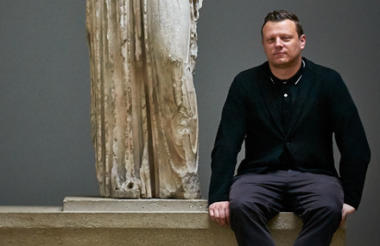Charities need to get to grips with social media, particularly video, and find a way to make money from it before it is too late, delegates heard at the Charity Technology Conference.
Chris Michaels, head of digital and publishing at the British Museum, was giving the lunchtime keynote at Civil Society Media’s annual Charity Technology conference yesterday, when he said that social media had changed the “not just the web but all media”.
He told delegates that “we have to take this stuff extremely seriously” because it is “not going to change back”.
He highlight the “explosion in video” as the biggest change to how the internet operates, and that this is a great opportunity for charities to “tell stories” and produce great content.
Michaels said that charities have to understand social media or risk being left out of conversations.
An example he said was that Donald Trump won the US presidential election because “because he won the social media war”.
He said charities could either “decide to participate in, or have no control of whatsoever” online conversations.
From analysis of activity he said that visitors to the British Museum open Facebook 20 times on average when they visit.
A massive flip in funding
Michaels said he expects there to be a “massive flip” in sources of funding.
At the moment he said the British Museum still gets most of its funding from traditional sources, such as ticket sales at the Museum and funding from government.
But statutory funding is under pressure and visitors expect to engage digitally.
“I don’t know when it will happen but there will be a massive flip,” he said. And that: “We have to believe we can make money from digital sources.”
Embrace video
He said that if charities don’t learn how to tell stories using video they will be left behind.
“Video is the most important thing that is taking place in the whole internet,” he said, which is leading to a “fundamental shift in how the web works”.
More content is produced in video form than in traditional HTML, meaning that “all these web pages might not mean anything in the next five years”.
When experimenting with Periscope, Twitter’s live video app, the museum discovered that people wanted “direct dialogue with people who understand the issue at hand” rather than a polished presenter.
On Facebook he said it was important to attract people’s attention within three seconds.
The British Museum expects to reach five million views on YouTube this year.
He advised charities to consider what their mission is before starting to create content to go back to their purpose.
“Digital too often divorces itself from the history of the organisation,” he said.
For the British Museum, its mission is to “try and tell the story of all human knowledge” which is why it makes sense to try to reach more of the world using digital.








